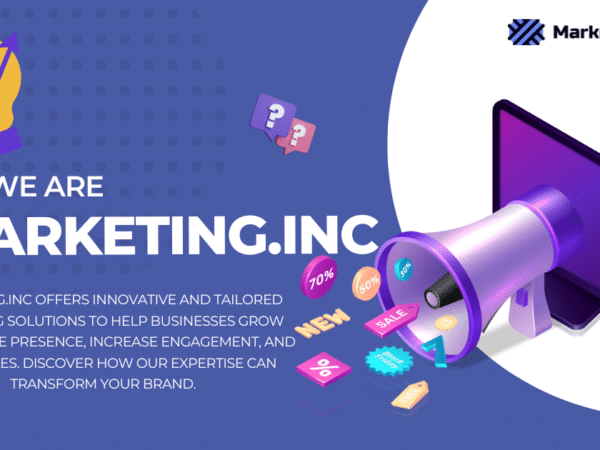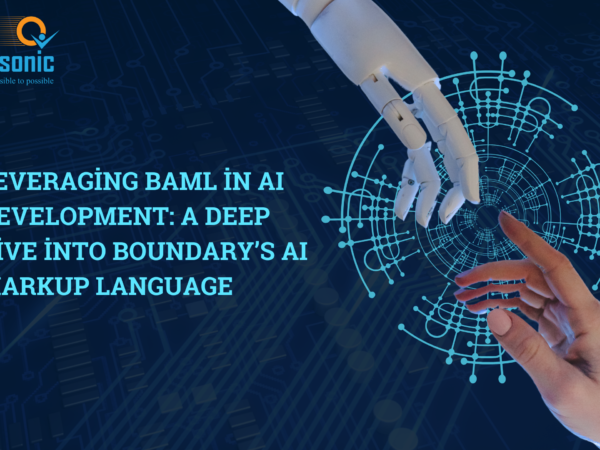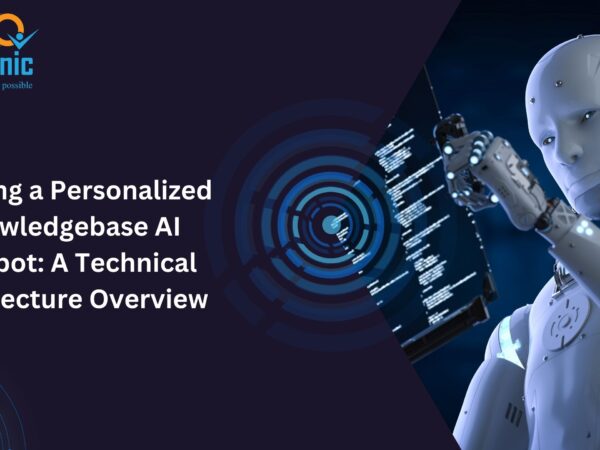In today’s fast-paced tech industry, accelerating software development is crucial for staying competitive. With the advent of artificial intelligence (AI), software development processes have become more efficient, automated, and scalable. This article explores how AI-powered software development can significantly boost productivity, streamline coding practices, and enhance the overall quality of software products. We’ll delve into AI tools, techniques, and best practices that are transforming the landscape of software engineering.
1. The Role of AI in Software Development
AI has become an integral part of modern software development, offering capabilities that range from code generation to automated testing. By leveraging AI, developers can significantly reduce manual tasks, minimize errors, and focus on more strategic aspects of development. AI-driven development practices are not only about speeding up the process but also about enhancing the quality and reliability of software.
1.1. AI-Powered Software Development: A New Era
AI-powered software development involves leveraging AI algorithms and tools to automate different stages of the software development lifecycle (SDLC). These AI-driven tools support tasks like code suggestion, bug detection, testing automation, and deployment. By integrating AI into the SDLC, the process of building, testing, and maintaining software is being transformed, leading to greater efficiency, accuracy, and speed. This revolution in software development enhances productivity, reduces errors, and ultimately results in more reliable and robust applications.
1.2. Benefits of AI in Software Development
- Increased Productivity: AI automates repetitive tasks, allowing developers to focus on complex problem-solving.
- Improved Code Quality: AI tools can detect bugs and vulnerabilities early in the development process.
- Faster Time-to-Market: AI-driven development practices reduce the time required to develop and deploy software.
- Scalability: AI enables the management of larger codebases and more complex systems with ease.
2. Key AI Tools for Software Development
AI tools are essential in modern software engineering, streamlining every stage from coding to deployment. They enhance code quality, automate testing, optimize performance, and detect vulnerabilities, ensuring robust and efficient software. These tools assist developers in debugging, refactoring code, and managing version control, significantly reducing errors and speeding up development cycles. As a result, AI-driven tools are vital for building reliable, high-quality software in today’s fast-paced development environments.
2.1. AI Coding Tools
AI coding tools assist developers by suggesting code snippets, detecting errors, and optimizing code. Tools like GitHub Copilot and Tabnine use machine learning models to predict and suggest code as developers’ type. These AI coding tools not only speed up the coding process but also help in maintaining code consistency and reducing syntax errors.
2.2. AI-Enhanced Software Testing
Testing is a crucial part of the software development lifecycle, and AI has made significant strides in automating this process. Tools like Testim and Applitools use AI to create, execute, and analyze test cases automatically. AI-enhanced software testing ensures that tests are more comprehensive, reducing the chances of bugs slipping into production.
2.3. AI in DevOps: Best Practices
DevOps is all about streamlining the software development process, and AI plays a crucial role in achieving this goal. AI in DevOps best practices include using AI for continuous integration/continuous deployment (CI/CD) pipelines, monitoring, and incident management. Tools like Jenkins with AI plugins and Dynatrace help automate the CI/CD process, ensuring faster and more reliable deployments.
3. Techniques for Accelerating Software Development with AI
To maximize AI’s potential in software development, it’s crucial to employ targeted techniques that align with your development objectives. These include AI-driven code generation, which automates coding tasks, and AI-enhanced testing, improving software reliability and efficiency. Additionally, integrating AI into deployment processes ensures smoother, more accurate releases. By strategically applying these AI techniques, you can streamline development workflows, reduce errors, and accelerate the overall software development lifecycle.
3.1. AI-Driven Code Generation
AI-driven code generation involves using AI models to automatically generate code based on predefined parameters. This technique is particularly useful in scenarios where repetitive code patterns are needed. Tools like OpenAI Codex and DeepCode can generate code snippets or entire modules, saving developers time and effort.
3.2. Automating Software Testing with AI
Automating software testing with AI is another technique that accelerates development. AI-driven testing tools can create test cases, run them, and analyze the results without human intervention. This automation reduces the testing time significantly, allowing for quicker iterations and faster releases.
3.3. AI for Faster Software Deployment
AI for faster software deployment involves using AI to automate the deployment process, ensuring that software is released quickly and without errors. AI can optimize the deployment pipeline by predicting potential issues and suggesting optimizations. This technique is particularly useful in environments where rapid deployment is critical.
3.4. AI-Powered Code Review
Code review is a critical aspect of software development, ensuring that the codebase is clean, efficient, and free of bugs. AI-powered code review tools like DeepCode and CodeGuru can analyze code for potential issues, suggest improvements, and even detect security vulnerabilities. This not only speeds up the review process but also enhances code quality.
4. Best Practices for AI-Driven Software Development
Implementing AI in software development requires following best practices to ensure that the integration is seamless and beneficial. These best practices help in maximizing the advantages of AI while mitigating potential challenges.
4.1. Selecting the Right AI Tools
The success of AI-driven software development largely depends on the tools you choose. It’s essential to select AI tools that align with your development environment and goals. Consider factors like integration capabilities, ease of use, and the level of automation provided by the tool. It’s also beneficial to opt for tools that have a strong community and support system.
4.2. Training and Upskilling Your Team
AI tools are only as effective as the developers using them. Therefore, it’s crucial to invest in training and upskilling your development team. Ensure that your developers are familiar with AI technologies and understand how to leverage them effectively. Regular training sessions and workshops can help in keeping the team updated on the latest AI advancements.
4.3. Integrating AI into Existing Workflows
Integrating AI into existing workflows can be challenging, but it’s essential for reaping the benefits of AI-driven development. Start by identifying areas where AI can have the most impact, such as testing, deployment, or code review. Gradually integrate AI tools into these processes, ensuring that they complement rather than disrupt your existing workflows.
4.4. Continuous Monitoring and Optimization
AI in software development is not a set-and-forget solution. Continuous monitoring and optimization are necessary to ensure that AI tools are functioning as expected and contributing to your development goals. Regularly review the performance of AI tools and make adjustments as needed to optimize their impact on your development process.
4.5. Emphasizing Security with AI
While AI can significantly improve the software development process, it also introduces new security challenges. AI-driven tools, if not properly managed, can potentially introduce vulnerabilities into the codebase. Therefore, it’s essential to implement robust security practices when using AI in software development. This includes regular security audits, using AI for vulnerability detection, and ensuring that AI tools themselves are secure.
5. The Future of AI in Software Development
The integration of AI in software development is still in its early stages, but the potential is immense. As AI technologies continue to evolve, we can expect even more advanced tools and techniques that will further accelerate software development.
5.1. AI and the Rise of Autonomous Development
One of the most exciting prospects of AI in software development is the concept of autonomous development. In the future, AI could take over more aspects of the development process, from coding to deployment, with minimal human intervention. This would allow developers to focus more on high-level problem-solving and innovation, while AI handles the routine tasks.
5.2. AI and Collaborative Development
AI also has the potential to enhance collaborative development. With AI-driven tools, developers can work more efficiently in teams, with AI managing version control, merging code changes, and even resolving conflicts. This collaborative approach could lead to faster development cycles and higher-quality software products.
5.3. Ethical Considerations in AI-Driven Development
As AI becomes more prevalent in software development, ethical considerations will become increasingly important. Issues such as data privacy, bias in AI algorithms, and the potential for AI to replace human jobs will need to be addressed. Developers and organizations will need to adopt ethical AI practices to ensure that AI-driven development benefits everyone.
Conclusion
AI is revolutionizing the software development landscape, offering tools and techniques that accelerate coding, testing, and deployment. By integrating AI into the software development lifecycle, organizations can achieve faster time-to-market, improved code quality, and enhanced productivity. However, to fully leverage the power of AI, it’s essential to select the right tools, train your team, and follow best practices for AI-driven development.
As AI technology continues to evolve, the future of software development looks promising. With advancements in AI-powered tools, we can expect even more significant improvements in how software is developed, tested, and deployed. By staying ahead of these trends and embracing AI-driven practices, developers and organizations can maintain a competitive edge in the ever-evolving tech landscape.








